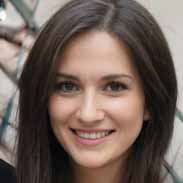Early Modern Period Flashcards, test questions and answers
Discover flashcards, test exam answers, and assignments to help you learn more about Early Modern Period and other subjects. Don’t miss the chance to use them for more effective college education. Use our database of questions and answers on Early Modern Period and get quick solutions for your test.
What is Early Modern Period?
The Early Modern Period, which spanned from the mid-15th century to the late 18th century, was a period of dramatic social and political changes in Europe. It saw the rise of absolute monarchies and nation states, as well as the development of capitalism and its associated economic systems. This period also witnessed significant developments in science and technology, as well as significant religious and cultural changes.At the beginning of this period, European society was dominated by feudalism; however, during this time strong monarchies were established in many countries such as France, England and Spain. This shift toward centralized power allowed these countries to expand their territories through military campaigns or diplomatic alliances. Trade with other parts of the world became increasingly important during this time; trading networks grew rapidly to connect Europe with Asia, Africa and the Americas. The growth of trade brought increased wealth to many people in Europe while leading to a sharp rise in inequality among different social classes within European societies. The emergence of capitalism also had a major impact on Early Modern society; it led to increased competition between traders who sought new ways to increase their profits through business innovations such as joint stock companies or banking systems. This competition stimulated technological advances such as mechanical clocks or advances in shipbuilding that helped reduce costs for transportation over long distances. These advancements were essential for establishing global markets that connected different parts of the world more closely together than ever before. Religious reformations made great strides during this period; Martin Luther’s Protestant Reformation challenged Catholic authority throughout Europe while John Calvin’s theology had a powerful influence on Christian thought throughout Europe and even beyond its boundaries into North America with Puritan settlers originating from England during this time period bringing Calvinist beliefs with them there too in 1620 onward when they migrated there from England via Holland initially (in what is known today as The Mayflower).














